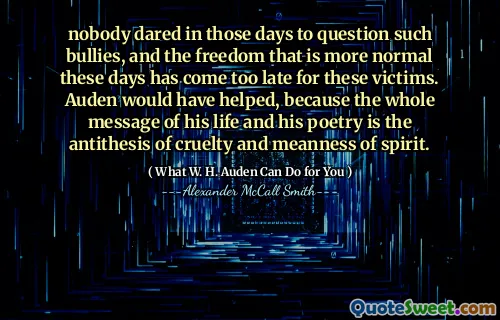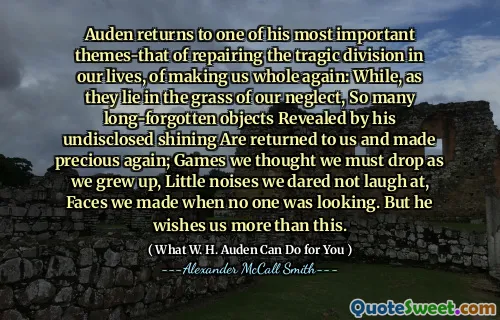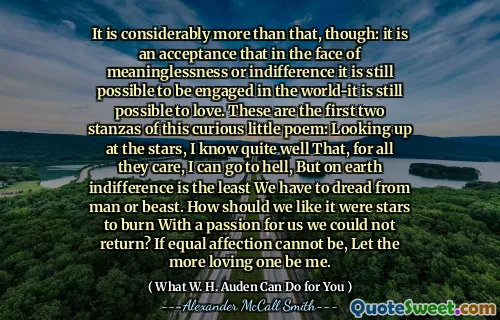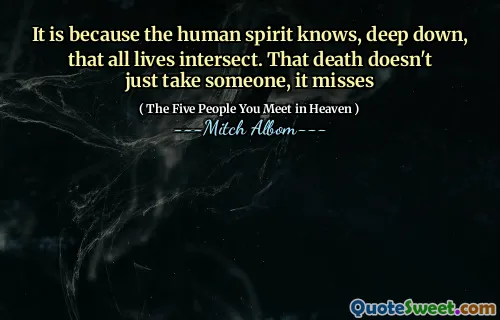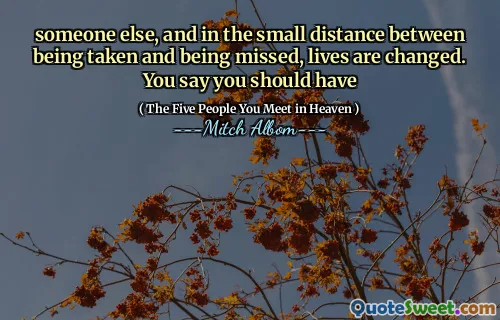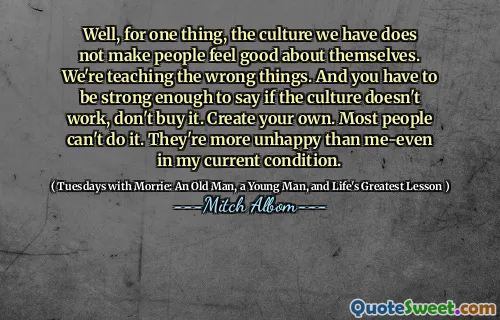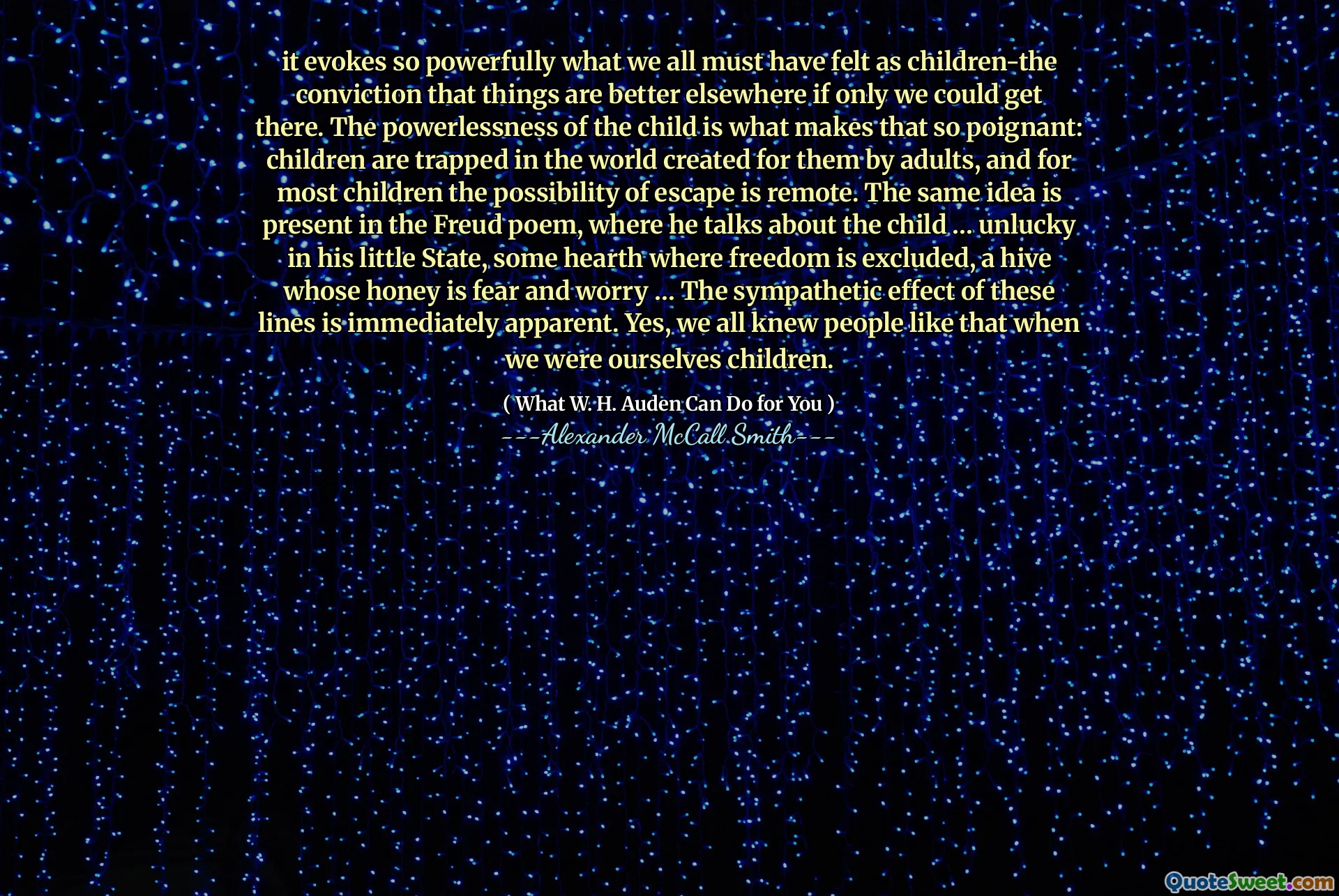
它如此有力地唤起我们所有人作为孩子们必须感受到的 - 信念,只要我们才能到达那里,其他地方的情况会更好。孩子的无能为力是使这种凄美的原因:孩子被成年人捕获的世界,对于大多数孩子而言,逃脱的可能性是遥不可及的。弗洛伊德诗中也存在同样的想法,他在那里谈论孩子……在他的小州处于不幸的地方,有些自由被排除在外,一个蜂巢,蜂蜜是恐惧和忧虑……这些线条的同情效果立即显而易见。是的,当我们自己是孩子时,我们都知道这样的人。
(it evokes so powerfully what we all must have felt as children-the conviction that things are better elsewhere if only we could get there. The powerlessness of the child is what makes that so poignant: children are trapped in the world created for them by adults, and for most children the possibility of escape is remote. The same idea is present in the Freud poem, where he talks about the child … unlucky in his little State, some hearth where freedom is excluded, a hive whose honey is fear and worry … The sympathetic effect of these lines is immediately apparent. Yes, we all knew people like that when we were ourselves children.)
Quote凸显了一种普遍的童年经历 - 渴望超越直接现实的更好的地方。它说明了几乎每个孩子都拥有的深层信念:幸福在其他地方,超出了他们的掌握。这种感觉是由于他们固有的无能为力而使这种感觉更加复杂,因为孩子们经常发现自己局限于成人世界设定的界限。逃避更充实的存在的愿望既是深刻又相关的,这与我们许多人产生共鸣的情感。
这种向往和拘禁的主题在其他文学作品中出现,例如弗洛伊德(Freud)的诗,它描述了一个不幸的环境,被困在一个令人窒息的环境中。充满恐惧的蜂巢的图像反映了许多孩子在运动中的情感景观。这些表达的凄美与我们自己的童年经历有关,确认许多人遇到了类似的孤立和渴望。这种思考强调了孩子无辜的观点固有的更深的情感斗争。

